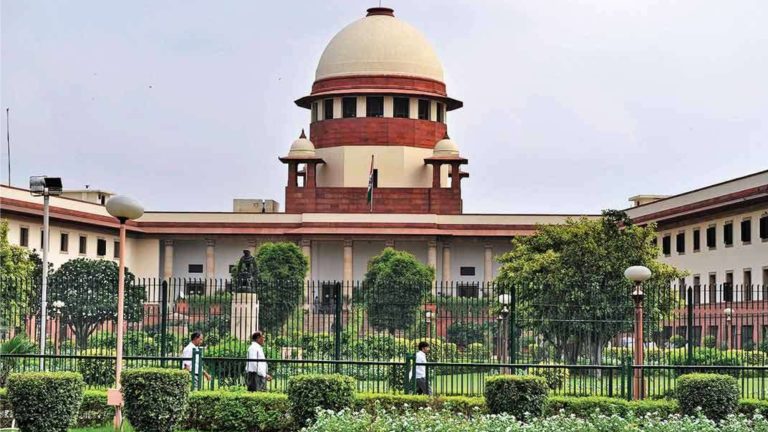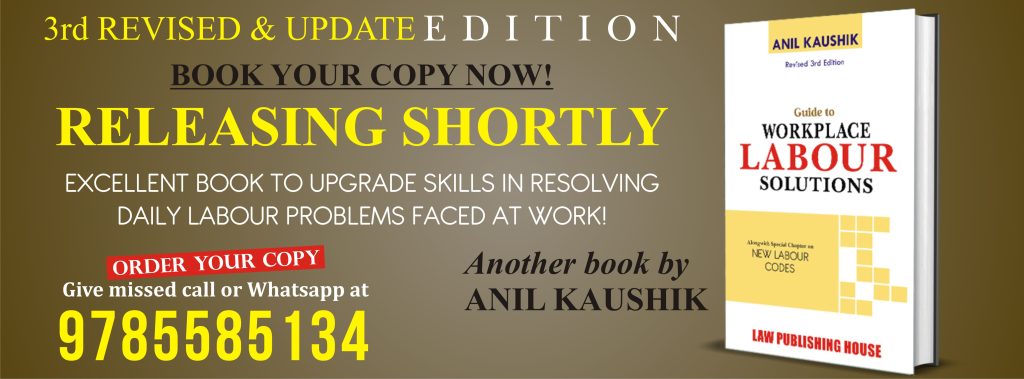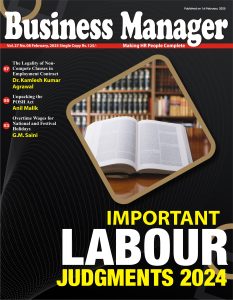The Supreme Court has affirmed that an Advocate cannot claim the right of legal representation under the the Industrial Disputes Act, 1947. Agreeing with the view expressed in Paradip Port Trust, Paradip vs. Their Workmen (1977) 2 SCC 339, a three-judge bench comprising Justices Sanjay Kishan Kaul, CT Ravikumar, and Sudhanshu Dhulia answered a reference against the judgment.
The issue that arose before the bench was whether the provisions of the Industrial Disputes Act, dealing with the aspects of representation by either of the parties through a specific lawyer and limitation put thereon, needs to be re-looked.
It may be noted that as per Section 36 of the Industrial Disputes Act, a workman who is a party to a dispute shall be entitled to be represented by any member of a registered trade union. Section 36(4) of the Act adds that in any proceeding before a labour Court or tribunal, a party to a dispute may be represented by a legal practitioner with the consent of the other parties to the proceeding and with the leave of the court they are appearing before.
In Paradip Port Trust, Paradip vs. Their Workmen (1977) 2 SCC 339, the Supreme Court had clarified the application of this provision and held that legal practitioners who were officers of companies or corporations and not actively practicing as advocates could still represent the entities in legal matters. The judgement emphasized that a person’s status as a legal practitioner would not impact their eligibility to represent parties before the tribunal as long as they met the qualifications specified under Section 36 of the Act.
However, the judgement also stated that an Advocate could not claim the right to legal representation under Section 30 of the Advocates Act, 1961 when it pertained to matters which attracted the Industrial Disputes Act. All advocates are permitted to practise in any Indian court or tribunal, according to Section 30 of the Act. In Paradip Port Trust, it was argued that Section 30 thus granted every advocate the right to practice in all courts and before any tribunal “as of right.”
However, the court observed that Section 30 would not come into force and emphasized that the Industrial Disputes Act was a special law focused on labor welfare and representation before adjudicatory authorities. This special act would thus take precedence over the Advocates Act, which was a general law governing the appearance of lawyers in various forums. The court applied the legal principle that “general laws do not derogate from special ones” and concluded that the Advocates Act was unlikely to affect the special provisions of the Industrial Disputes Act.
Further, the court highlighted that the restriction on engaging a legal practitioner was placed on the party involved, not the legal practitioner’s rights. The court asserted that in cases under the Industrial Disputes Act, the primary consideration was the rights and restrictions imposed on the parties (employers and workmen) rather than the rights of legal practitioners. Therefore, the need to consider the rights of legal practitioners may not arise in this context.
Paradip Port Trust was later referred to a 3-judge bench for reconsideration.
Upholding what was held in Paradip Port Trust, the Supreme Court held–
“We are in agreement with the view adopted in Paradip Port Trust, Paradip’s case (supra). As emphasized, the matter is not to be reviewed from the point of view of the legal practitioner but from the aspect of the employer and workmen who are the principal contestants in an industrial dispute as observed in the aforesaid judgment. We really find no ground to revisit the well settled position of law which has prevailed for almost half a century.”
The reference was answered accordingly.
Case Title: Thyssen Krupp Industries India Private Limited & Ors v. Suresh Maruti Chougule & Ors.
Citation : 2023 LiveLaw (SC) 868
Stay connected with us on social media platform for instant update click here to join our LinkedIn, Twitter & Facebook



































